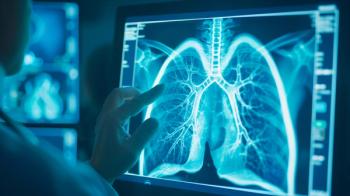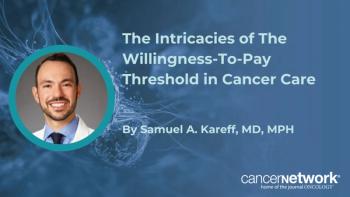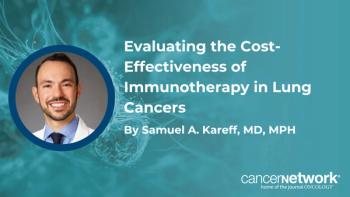
Smoking-Related Lung Cancer Remains Elevated 25 Years After Quitting
Among former heavy smokers, the risk for lung cancer remains significantly increased compared with never-smokers, even more than 25 years since quitting.
Among former heavy smokers, the risk for lung cancer remains significantly increased compared with never-smokers, even more than 25 years since quitting (YSQ), according to an analysis from the Framingham Heart Study.
“Guidelines adopted by the Centers for Medicare and Medicaid Services (CMS) mandate insurance coverage of low-dose computed tomography (LDCT) screening for current or former smokers who meet age and pack-year criteria, but they exclude former smokers with more than 15 YSQ,” wrote study authors led by Hilary A. Tindle, MD, MPH, of Vanderbilt University Medical Center in Nashville. “If the risk of lung cancer in fact remains elevated for more than 15 YSQ, then extending the screening window in former smokers could augment early detection without diminishing screening effectiveness.”
The investigators used data from the Framingham Heart Study to study this question, including 3,905 individuals from the original cohort and 5,002 from the offspring cohort. The median follow-up period was 28.7 years; results were
During the follow-up period, a total of 284 lung cancers were found. In current smokers, the incidence rate for lung cancer was 1.97 per 1,000 person-years; in former smokers, that rate was 1.61/1,000 person-years, and in never-smokers, it was 0.26/1,000 person-years.
When compared with never-smokers, former heavy smokers (those with at least 21.3 cumulative pack-years of smoking history) had a significantly higher risk of lung cancer at all time points, though this did diminish over time. At < 5 YSQ, the adjusted hazard ratio (HR) for lung cancer in former heavy smokers was 12.12 (95% CI, 6.94–21.17; P < .001).
From 5 to < 10 YSQ, the HR was 11.77 (95% CI, 6.78–20.45; P < .001), and from 10 to < 15 YSQ, it was 7.81 (95% CI, 3.98–15.33; P < .001). From 15 to < 25 YSQ, the risk dropped further but was still significantly higher, with an HR of 5.88 (95% CI, 3.19–10.83; P < .001). And at more than 25 YSQ, the risk was still significant, with an HR of 3.85 (95% CI, 1.80–8.26; P < .001).
“The importance of smoking cessation cannot be overstated,” the authors wrote. “Persistently elevated lung cancer risk in former smokers is important, given that 4 of every 10 lung cancers diagnosed in former smokers occur in people with more than 15 YSQ, who are beyond the current window of eligibility for lung cancer screening.”
Newsletter
Stay up to date on recent advances in the multidisciplinary approach to cancer.
Related Content




Evaluating the Cost-Effectiveness of Immunotherapy in Lung Cancers
















































